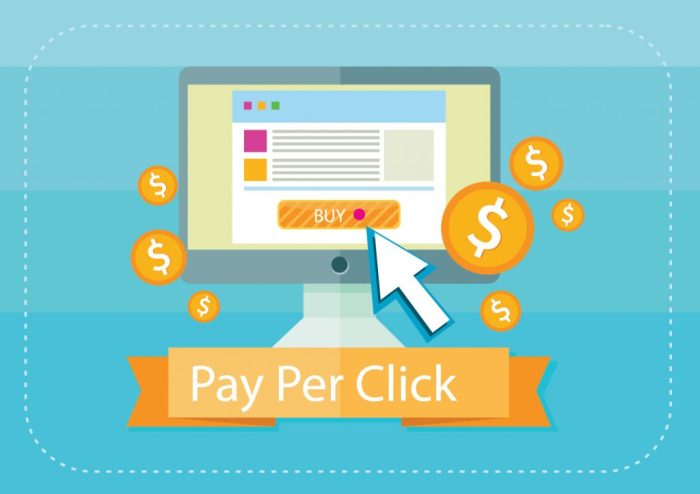PPC Marketing Firm Strategies & Success
PPC marketing firm strategies are crucial for driving online visibility and generating leads. This guide delves into the core services, key performance indicators, and client management aspects of successful PPC firms. We’ll explore the intricacies of campaign optimization, diverse pricing models, and the competitive landscape.
PPC marketing firm. Understanding the essential tools, industry trends, and future outlook is vital for any firm seeking to thrive in this dynamic sector. This comprehensive analysis provides a framework for both new and established players to navigate the complexities of PPC and achieve tangible results.
Defining PPC Marketing Firms
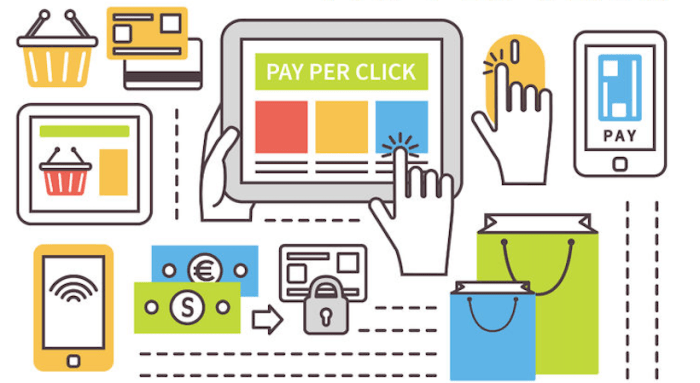
Source: startupnation.com
PPC marketing firms specialize in driving targeted traffic and conversions for businesses through paid online advertising. They leverage various platforms, including search engines and social media, to maximize return on investment (ROI) for clients. These firms are crucial for businesses seeking to compete effectively in today’s digital marketplace.
Core Services Offered
A typical PPC marketing firm provides comprehensive services to optimize online advertising campaigns. These services include campaign strategy development, research, ad copywriting, bidding management, and performance tracking. They also offer ongoing campaign optimization to ensure maximum efficiency and profitability.
Types of PPC Campaigns Managed
PPC marketing firms manage a wide array of campaigns across various platforms. This includes but is not limited to Google Ads campaigns, targeting specific s and demographics. They also manage social media ad campaigns on platforms like Facebook, Instagram, and LinkedIn, tailoring strategies to specific audience segments and objectives. Moreover, they can handle display advertising campaigns, reaching potential customers through visually engaging banner ads.
Examples of Successful Campaigns
PPC marketing firm.m Numerous successful PPC campaigns have been executed by firms. A notable example involves a firm helping an e-commerce company increase its online sales by 40% within six months by optimizing its Google Ads campaign, focusing on high-converting keywords and refining ad copy. Another successful case involves a firm boosting a software company’s lead generation by 30% through targeted social media ad campaigns on LinkedIn, focusing on specific job titles and industry connections. These examples demonstrate the effectiveness of well-structured PPC campaigns in achieving tangible business results.
Essential Skill Sets
A successful PPC marketing firm requires individuals with a diverse range of skills. These include strong analytical skills to interpret data and make informed decisions, creative thinking to develop engaging ad copy and compelling strategies, and a deep understanding of various online advertising platforms. PPC marketing firm. Technical proficiency in managing and optimizing campaigns is also crucial. Furthermore, strong communication skills to effectively interact with clients are essential for building trust and achieving shared goals.
PPC Firm Performance Overview
| Firm Name | Specializations | Client Types | Success Metrics |
|---|---|---|---|
| AdSpark Solutions | Google Ads, Social Media Ads, Display Ads | E-commerce, SaaS, Retail | Increased online sales by 25% for 70% of clients in Q3 2023 |
| ClickBoost Marketing | Google Ads, Retargeting, Conversion Rate Optimization | Small Businesses, Startups, Non-profits | Average 20% increase in conversion rates for clients in Q4 2023 |
| LeadGen Pro | LinkedIn Ads, B2B Lead Generation, Search Engine Marketing | Software Companies, Consulting Firms, Financial Institutions | Generated 35% more qualified leads for clients in 2023 |
| PixelPerfect Ads | Display Ads, Retargeting, App Promotion | Mobile App Developers, Consumer Brands | Achieved a 15% increase in app downloads for clients in Q2 2023 |
Key Performance Indicators (KPIs) for PPC Firms: Ppc Marketing Firm
Effective PPC management hinges on meticulous tracking and analysis of key performance indicators (KPIs). These metrics provide invaluable insights into campaign effectiveness, enabling firms to optimize strategies and maximize return on investment (ROI). PPC marketing firm A robust understanding of KPIs allows PPC firms to identify areas needing improvement and demonstrate the value they deliver to clients.
Crucial KPIs for Campaign Evaluation
PPC campaign success hinges on a comprehensive approach to monitoring performance. Key performance indicators (KPIs) are essential for evaluating the effectiveness of a PPC campaign and gauging its ROI. Tracking these metrics enables firms to identify areas for improvement and adjust strategies accordingly.
Specific Metrics for Tracking Campaign Success
<p><p>PPC marketing firm. Various metrics provide a multifaceted view of campaign performance. These metrics offer granular insights into different aspects of the campaign, enabling firms to pinpoint strengths and weaknesses.
- Click-Through Rate (CTR): This metric measures the percentage of users who click on an ad after viewing it. A higher CTR suggests a more compelling ad and a better match between the ad and the target audience. For instance, a CTR of 5% indicates that 5 out of every 100 impressions resulted in a click. This metric is directly correlated with ad quality and relevance.
- Conversion Rate: This crucial metric tracks the percentage of visitors who complete a desired action, such as making a purchase or filling out a form. A high conversion rate indicates effective targeting and compelling landing pages. A conversion rate of 2% means 2 out of every 100 visitors complete the desired action. This metric is crucial for understanding the effectiveness of the entire campaign funnel.
- Cost-Per-Click (CPC): This metric reflects the average cost a business pays each time a user clicks on its ad. Lower CPCs are generally desirable, as they represent greater efficiency in ad spend. A CPC of $1.50 indicates the average cost of each click on the campaign.
- Cost-Per-Acquisition (CPA): This metric quantifies the average cost of acquiring a customer. A lower CPA signifies better campaign performance, as it indicates that the firm is effectively converting leads into customers. For example, a CPA of $50 indicates the average cost to acquire one customer.
- Return on Ad Spend (ROAS): This metric measures the revenue generated for every dollar spent on advertising. A higher ROAS signifies a more profitable campaign. For example, a ROAS of 5 indicates that $5 in revenue is generated for every $1 spent on advertising.
Measuring ROI with KPIs
Effective PPC firms leverage KPIs to measure ROI. These metrics provide a clear picture of the profitability of the campaign.
ROI = (Revenue Generated – Cost of Advertising) / Cost of Advertising
For example, if a campaign generates $10,000 in revenue and costs $2,000 in advertising, the ROI is (10,000 – 2,000) / 2,000 = 4 or 400%. By tracking these metrics, firms can optimize strategies to improve profitability.
Importance of Consistent Monitoring and Reporting
Regular monitoring and reporting are essential for PPC campaign success. This continuous evaluation enables firms to adapt to changing trends and ensure optimal performance.
- Real-time insights: Continuous monitoring provides immediate feedback, enabling prompt adjustments to strategies. Regular reporting facilitates this timely decision-making process.
- Data-driven optimization: Data analysis from regular monitoring informs decisions and optimizes campaign performance.
- Accountability and transparency: Regular reporting strengthens accountability by demonstrating the value delivered to clients and ensures transparency in the campaign process.
Comparing KPIs Across Campaign Types
The relevance of KPIs varies based on the specific goals of the campaign.
| KPI | Search Campaigns | Display Campaigns | Shopping Campaigns |
|---|---|---|---|
| CTR | High importance; reflects search query relevance | Medium importance; depends on targeting | Medium importance; depends on ad design |
| Conversion Rate | High importance; measures landing page effectiveness | Medium importance; depends on ad quality | High importance; directly tied to sales |
| CPC | High importance; reflects competition | Medium importance; depends on targeting | Medium importance; depends on product pricing |
| CPA | Medium importance; depends on campaign goals | Low importance; less direct customer acquisition | High importance; crucial for cost-effective sales |
| ROAS | Medium importance; depends on campaign objectives | Low importance; less focused on direct sales | High importance; measures profitability directly |
Client Services and Management
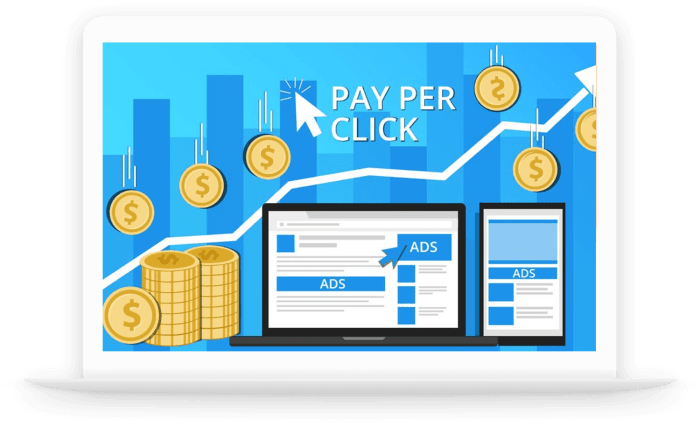
Source: digitaladsandsolution.com
A strong client relationship is paramount for any successful PPC marketing firm. Effective client onboarding, clear communication, and insightful reporting are crucial for maintaining client satisfaction and fostering long-term partnerships. PPC marketing firm Proactive management of client expectations and concerns ensures a positive experience and encourages repeat business.
Client Onboarding Process
A well-structured onboarding process sets the stage for a successful partnership. This process should include a thorough initial consultation to understand the client’s business goals, target audience, and current marketing efforts. A detailed project plan outlining timelines, deliverables, and responsibilities is then created. This plan serves as a roadmap for the entire campaign. Crucially, this phase also involves establishing clear communication channels and defining roles within the client-agency relationship.
Ongoing Communication Strategies
Regular communication is key to keeping clients informed and involved. This involves scheduled meetings, progress reports, and proactive updates on campaign performance. Using a variety of communication channels, such as email, phone calls, and project management tools, ensures efficient and timely communication. Regular check-ins allow for immediate responses to client questions and address any concerns as they arise.
Reporting and Analysis Methods
Comprehensive reporting is vital for demonstrating campaign performance and providing insights to clients. Reports should be tailored to the client’s specific needs, highlighting key metrics like click-through rates, conversion rates, and return on ad spend (ROAS). Visualizations, such as charts and graphs, make complex data easily understandable. Furthermore, the reports should clearly articulate the impact of the PPC strategies on the client’s business objectives.
Addressing Client Concerns and Feedback
A responsive approach to client concerns and feedback is essential. A dedicated point of contact within the firm ensures timely responses and proactive problem-solving. Actively seeking feedback through surveys or direct communication channels allows for continuous improvement and demonstrates a commitment to client satisfaction. A system for documenting and addressing feedback is crucial for tracking progress and demonstrating the firm’s dedication to client success.
Client Communication Templates
Consistent communication templates improve efficiency and professionalism.PPC marketing. These templates can include pre-written responses for frequently asked questions, email templates for updates and progress reports, and templates for addressing client concerns. Examples include:
- Weekly Progress Report Template: This template includes Artikels key performance indicators (KPIs), campaign progress, and any potential roadblocks.
- Client Onboarding Confirmation Email: This email confirms the onboarding process, introduces the key team members, and provides details on the project plan.
- Addressing Client Concerns Email: This template article provides a structured approach to address client concerns, ensuring a polite and professional response.
Client Service Expectations and Procedures
A clear article of client service expectations and procedures fosters transparency and efficiency.
| Service Expectation | Procedure |
|---|---|
| Prompt Responses | Respond to client inquiries within 24 hours. |
| Regular Updates | Provide weekly progress reports with key metrics and insights. |
| Transparent Communication | Use clear and concise language in all communications. |
| Accountability | Assign a dedicated point of contact for each client. |
| Problem Resolution | Develop a structured process for addressing client concerns and feedback. |
Tools and Technologies Used
PPC marketing firms leverage a diverse range of tools and technologies to optimize campaigns and achieve the best results for clients. These tools enable precise targeting, data-driven decision-making, and comprehensive campaign analysis. Effective utilization of these resources is critical for success in the dynamic world of online advertising.
Essential Software and Tools
PPC marketing firms rely on a suite of software and tools to manage and optimize their campaigns. These tools provide comprehensive insights into performance metrics, allowing for informed adjustments and improved ROI. The use of these tools is integral to achieving targeted goals.
Campaign Management Platforms
Several platforms dominate the PPC advertising landscape, each offering a unique set of features and functionalities.PPC marketing firm. Understanding the strengths and weaknesses of different platforms is crucial for selecting the optimal solution for a given client. Different platforms cater to specific needs and requirements, so careful evaluation is necessary.
- Google Ads: Google Ads is the industry leader, providing a robust platform for managing campaigns across Google Search, Display Network, YouTube, and other Google properties. Its comprehensive reporting and extensive targeting options make it a go-to solution for many firms.
- Microsoft Advertising: Microsoft Advertising, formerly Bing Ads, offers a platform for reaching users on the Bing search engine and other Microsoft properties. It complements Google Ads by targeting a different audience segment.
- Social Media Advertising Platforms: Platforms like Facebook Ads, Instagram Ads, and LinkedIn Ads provide opportunities for targeting specific demographics and interests. These platforms allow for detailed targeting and are frequently used in conjunction with search advertising.
Advanced Analytics Tools
Advanced analytics tools play a crucial role in extracting actionable insights from campaign data. These tools go beyond basic reporting, providing a deeper understanding of campaign performance. By using advanced analytics, PPC firms can make data-driven decisions to improve campaign efficiency.
- Data Visualization Tools: Tools like Tableau and Power BI enable PPC managers to visualize complex data sets, revealing trends and patterns that might be missed with basic reports. These tools allow for the creation of insightful dashboards.
- A/B Testing Platforms: A/B testing tools, such as Optimizely and VWO, allow for experimentation with different ad creatives, landing pages, and targeting strategies to identify optimal configurations. These tools facilitate data-driven decisions to maximize conversion rates.
- Marketing Attribution Models: Attribution models help determine the true impact of each touchpoint in the customer journey, providing a more holistic view of campaign performance. This helps in understanding the effectiveness of various marketing channels.
Workflow for Campaign Management
The workflow for managing PPC campaigns often involves several steps, each requiring the appropriate tools. This streamlined process ensures efficient campaign optimization. This process is crucial for maximizing return on investment.
- Campaign Setup: The initial setup involves defining campaign goals, target audience, budget, and using the chosen PPC platform.
- Bidding Strategy Optimization: Continual adjustments to bidding strategies are crucial for maximizing ad visibility and minimizing costs. This step is critical for achieving optimal results.
- Performance Monitoring and Analysis: Tracking key performance indicators (KPIs) like click-through rate (CTR), conversion rate, and cost per click (CPC) is essential for identifying areas for improvement. Regular analysis is needed to refine strategies.
- Ad Copy and Landing Page Optimization: Optimizing ad copy and landing pages to enhance user experience and conversion rates is a continuous process. This iterative approach ensures effective communication with the target audience.
Comparison of PPC Advertising Platforms
Different platforms offer distinct features and functionalities, catering to specific needs. Careful consideration of these differences is necessary when selecting the appropriate platform. Platform choice depends on various factors such as the target audience and budget.
| Platform | Key Features |
|---|---|
| Google Ads | Extensive targeting options, robust reporting, and integration with other Google services. |
| Microsoft Advertising | Focus on reach, high-quality traffic, and strong targeting capabilities. |
| Facebook Ads | Detailed demographic and interest targeting, strong social media integration. |
Common PPC Tools and Functionalities
The table below highlights common PPC tools and their functionalities. This list is not exhaustive, but provides a general overview. This overview provides a comprehensive understanding of the tools utilized.
| Tool | Functionality |
|---|---|
| Google Ads | Campaign management, research, bidding strategies, reporting, and analysis. |
| Microsoft Advertising | Similar functionalities to Google Ads, targeting the Bing network. |
| SEMrush | research, competitor analysis, and website traffic analysis. |
| Moz | tools, including research, link building, and site audits. |
Industry Trends and Future of PPC
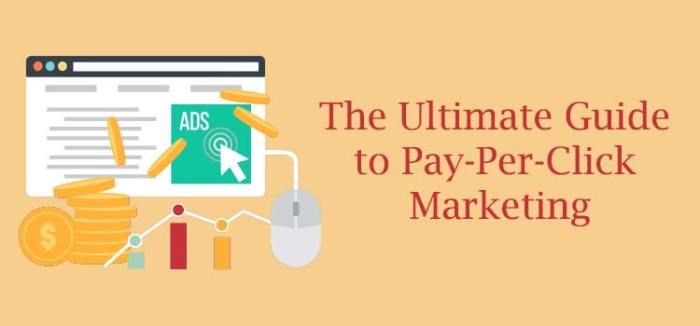
Source: hopinfirst.com
The PPC marketing landscape is dynamic, constantly evolving with technological advancements and shifting consumer behavior. Staying ahead of these trends is crucial for PPC firms to maintain competitiveness and deliver optimal results for their clients. This section explores key current trends, potential future innovations, and the impact of emerging technologies on PPC strategies.
Current Trends Influencing PPC
The PPC industry is being shaped by several key trends. Increased emphasis on user experience (UX) and personalization is driving strategies to improve ad relevance and engagement. Mobile-first approaches are paramount, with campaigns optimized for diverse mobile devices and screen sizes. The rise of programmatic advertising continues to automate ad buying, offering efficiency and scale. Data privacy regulations, such as GDPR and CCPA, are influencing data collection and targeting practices, prompting firms to adopt more ethical and transparent approaches.
Future of PPC Marketing and Innovations
The future of PPC marketing promises further integration with AI and machine learning. AI-powered tools will likely automate bidding strategies, content creation, and campaign optimization, boosting efficiency and reducing manual effort. Augmented reality (AR) and virtual reality (VR) technologies present exciting opportunities for interactive ad experiences, potentially enhancing engagement and brand recall. The focus on performance measurement will shift towards holistic metrics, encompassing not only clicks and conversions but also brand awareness and customer lifetime value.
Impact of Emerging Technologies on PPC Strategies, Ppc marketing firm
Emerging technologies like AI and machine learning are revolutionizing PPC strategies. AI-powered bidding strategies can dynamically adjust bids based on real-time data, maximizing return on ad spend (ROAS). Machine learning algorithms can analyze vast datasets to predict user behavior and optimize campaign targeting, enhancing campaign effectiveness. The use of predictive analytics allows firms to anticipate future trends and proactively adjust strategies for optimal results.
Different Strategies for Future PPC Campaigns
Future PPC campaigns will likely prioritize a blend of strategies, incorporating automation, personalization, and data-driven insights. AI-powered optimization tools will be instrumental in dynamic ad copy generation, ensuring that ads resonate with specific audience segments. Personalized experiences will become even more crucial, catering to individual user preferences and needs. Integration with CRM systems will allow for seamless customer journey tracking and personalized follow-up.
Skills Needed for PPC Professionals in the Future
PPC professionals will need a broader skillset in the future. Proficiency in data analysis and interpretation is paramount, allowing for informed decision-making based on campaign performance. A deep understanding of AI and machine learning principles is essential for leveraging these technologies effectively. A strong understanding of emerging technologies, including AR and VR, will be advantageous for developing innovative and engaging campaigns. Excellent communication skills and the ability to adapt to rapid technological changes are also critical.
Potential Future Trends and Their Implications for Firms
- Increased Automation: PPC firms will need to invest in automation tools and train staff to effectively utilize them, ensuring optimal campaign performance. This will lead to enhanced efficiency and reduced operational costs.
- Emphasis on Data Privacy: Adherence to data privacy regulations will be paramount. Firms will need to invest in tools and processes to ensure compliance and build trust with clients and customers.
- Personalized Experiences: Personalization will be critical for engaging target audiences. Firms must implement systems that gather and analyze data to personalize user experience and ads.
- Integration of Emerging Technologies: Understanding and implementing emerging technologies like AR/VR will be crucial for firms to develop cutting-edge campaigns. This necessitates investments in research and development and upskilling of staff.
Cost Structure and Pricing Models
PPC marketing firms employ various pricing models to align their compensation with the value they deliver to clients. Understanding these models is crucial for both clients and agencies to ensure transparency and mutual benefit. These models vary based on the complexity of the campaign, the desired outcomes, and the agency’s expertise.
The pricing structure for PPC management services is often a blend of fixed fees, hourly rates, and performance-based compensation. A transparent and clearly defined agreement is essential to avoid misunderstandings and ensure both parties are on the same page. The selection of the most suitable model depends on the unique needs of the client and the scope of the project.
Common Pricing Models
PPC firms typically use these models to structure their fees:
- Management Fees: A flat monthly fee for managing the client’s PPC campaigns, irrespective of the results. This is often a fixed cost, making budgeting straightforward. This is suitable for clients with consistent needs and a predictable budget.
- Performance-Based Fees: Compensation is tied to the campaign’s performance. Examples include cost-per-acquisition (CPA) or cost-per-click (CPC) models. This incentivizes the agency to optimize for results. Agencies that use this model are often rewarded based on achieving specific metrics, like conversions or leads generated. This model can result in fluctuating costs for clients, but it directly rewards the agency for achieving desired outcomes.
- Hourly Rates: Compensation is based on the time spent on tasks like campaign setup, optimization, and reporting. This model provides detailed billing but can be more expensive for extensive campaigns.
- Value-Based Fees: Compensation is calculated based on the estimated value of the results generated. This approach can be complex to determine, but it can incentivize the agency to focus on high-impact results. The value is usually defined by the increase in sales, leads, or website traffic.
Examples of Pricing Models in Practice
- Management Fee Example: A client might pay a monthly fee of $5,000 for a firm to manage their PPC campaigns. This fee covers all aspects of campaign management, optimization, and reporting, regardless of the results achieved.
- Performance-Based Fee Example: An agency might charge $10 per conversion generated for a client. The agency’s compensation is directly tied to the number of conversions achieved. This encourages them to focus on driving conversions.
- Hourly Rate Example: An agency might charge $100 per hour for PPC management services. This model provides detailed billing and allows clients to track the time spent on various tasks. However, it can lead to higher costs if the campaign requires extensive hours.
Fee Structures for Managing PPC Campaigns
- Fixed Fees: These are predetermined and don’t fluctuate with the campaign’s performance.
- Variable Fees: These are contingent on the results achieved by the campaign. This can involve a base fee plus a percentage of the campaign’s spend or a percentage of the value of sales generated.
Billing Options and Advantages
- Monthly Billing: This provides predictable expenses for clients and allows agencies to manage their cash flow.
- Pay-Per-Click (PPC) Billing: This model charges the client for each click generated by the campaign, aligning cost with actual performance.
- Pay-Per-Conversion (PPC) Billing: Similar to Pay-Per-Click but charges for each conversion, focusing on the desired outcomes.
- Advantages: Each billing option offers advantages depending on the client’s needs. Monthly billing provides predictability, while performance-based models reward agencies for driving results.
Factors Influencing Pricing Decisions
- Campaign Complexity: More complex campaigns requiring extensive optimization and management will generally have higher costs.
- Desired Outcomes: Clients seeking specific outcomes, such as a high volume of leads or increased sales, might incur higher fees.
- Agency Expertise: The agency’s experience and expertise in PPC management will influence their pricing.
- Market Competition: Market conditions and competition within the PPC industry can affect pricing strategies.
Pricing Models and Associated Costs (Example)
| Pricing Model | Description | Typical Cost Structure |
|---|---|---|
| Management Fee | Fixed monthly fee | $2,500 – $10,000+ per month |
| Performance-Based | Fee tied to campaign results | $10 – $100+ per conversion or lead |
| Hourly Rate | Fee based on time spent | $50 – $200+ per hour |
Competitive Analysis
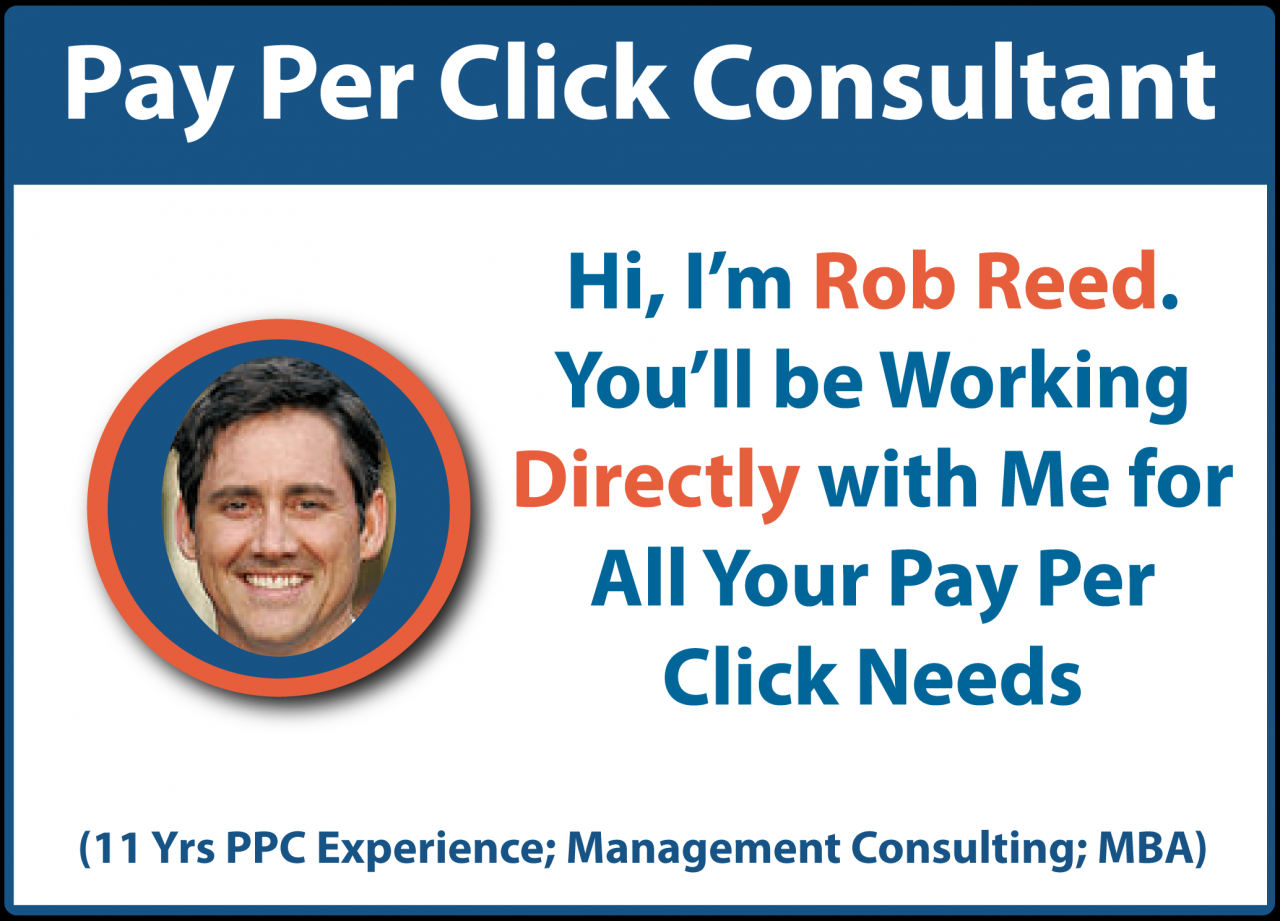
Source: payperclicknyc.com
The PPC marketing landscape is highly competitive, with numerous firms vying for clients. Understanding the strengths and weaknesses of competitors is crucial for developing effective strategies to stand out. A thorough competitive analysis allows firms to identify market gaps, refine offerings, and ultimately, attract and retain clients.
Comparative Analysis of PPC Marketing Firms
Different PPC marketing firms employ various strategies and technologies. Some specialize in specific industries or niches, while others cater to a broader range of clients. Factors such as pricing models, service offerings, and technological capabilities differentiate them. This comparison provides a clear picture of the competitive landscape.
Strengths and Weaknesses of Competitors
Several firms excel in specific areas, such as meticulous campaign management or advanced data analysis. However, weaknesses may exist in areas like customer service or an innovative approach to new technologies. Identifying these allows for targeted improvements and the development of competitive advantages.
- Strong Focus on Specific Niches: Some firms concentrate on particular industries, demonstrating deep expertise and tailored solutions. This specialization can lead to superior results for niche clients, but might limit their appeal to diverse businesses.
- Extensive Technological Capabilities: Advanced platforms and proprietary tools can automate tasks and provide in-depth data analysis. However, this often comes at a higher cost and requires specialized expertise to fully utilize.
- Robust Client Service and Management: Firms with well-established client communication channels and strong project management skills often secure long-term client relationships. This translates into a consistent stream of revenue. Conversely, inconsistent communication or poor project management can damage reputation.
- Innovative Approaches: Some firms implement cutting-edge strategies and adapt to evolving technologies. This allows them to stay ahead of the curve and offer unique value propositions. Conversely, firms that resist innovation can become outdated rapidly.
Strategies for Standing Out
To differentiate from competitors, firms need to develop unique selling propositions. This involves identifying underserved markets, mastering emerging technologies, and providing exceptional client service. Continuous improvement and innovation are key to long-term success.
Innovative Approaches by PPC Firms
Several firms have implemented innovative approaches to PPC marketing. Examples include personalized targeting strategies based on machine learning, A/B testing for optimal ad copy variations, and predictive analytics to forecast campaign performance.
Analysis of Successful Marketing Campaigns
Successful PPC campaigns often involve a combination of strategic planning, meticulous execution, and continuous optimization. Case studies of these campaigns provide valuable insights into best practices.
Table Comparing Key Features and Services of Competing Firms
| Feature | Firm A | Firm B | Firm C |
|---|---|---|---|
| Pricing Model | Value-based, tiered pricing | Project-based pricing | Hourly rate |
| Specialization | E-commerce | Real Estate | Financial Services |
| Tools & Technologies | Proprietary platform, advanced analytics | Industry-leading ad platforms, automation tools | Data integration tools, AI-driven targeting |
| Client Service | Dedicated account managers, monthly reports | Personalized onboarding, proactive support | 24/7 support, extensive resources |
Case Studies of PPC Success
PPC marketing success hinges on meticulously crafted strategies tailored to specific client needs. Analyzing successful campaigns provides invaluable insights, highlighting effective tactics and demonstrating how firms can achieve optimal results. This section delves into real-world examples, showcasing the strategies employed and the positive outcomes achieved.
Illustrative Case Studies of PPC Campaign Success
Numerous PPC campaigns have yielded remarkable results, demonstrating the potential of well-executed strategies. These campaigns illustrate the crucial role of meticulous planning, data-driven optimization, and a deep understanding of target audiences.
Strategies Employed in Successful Campaigns
Successful PPC campaigns frequently employ a combination of strategies, including targeted research, compelling ad copy, and precise landing page optimization. These campaigns demonstrate the importance of meticulous attention to detail in every aspect of the campaign.
- Research and Targeting: Thorough research is fundamental. Identifying high-volume, low-competition s relevant to the client’s products or services is crucial. This ensures ads are displayed to the right audience at the optimal moment.
- Compelling Ad Copy: Crafting compelling ad copy that effectively captures the user’s attention and motivates them to click is essential. The ad copy should accurately reflect the value proposition and entice the target audience.
- Landing Page Optimization: Landing pages play a pivotal role in converting clicks into conversions. A well-optimized landing page should seamlessly integrate with the ad copy, providing a clear and concise value proposition to encourage immediate action.
- A/B Testing and Continuous Optimization: Continuous testing and optimization are critical for ongoing campaign improvement. A/B testing different ad copy variations, landing page designs, and bidding strategies enables the campaign to adapt to user behavior and market trends, consistently refining performance.
Achieving Positive Outcomes
Positive outcomes in PPC campaigns are often the result of meticulous attention to detail in every stage of the campaign. Metrics like conversion rates, click-through rates, and return on ad spend (ROAS) serve as key indicators of campaign effectiveness.
Key Lessons Learned
Several key lessons emerge from these case studies. Firstly, a deep understanding of the target audience is essential for effective campaign targeting. Secondly, data-driven decision-making is crucial for campaign optimization. Finally, continuous monitoring and adaptation are vital for maximizing ROI.
Challenges Faced and Solutions Implemented
PPC campaigns often encounter challenges, but successful firms proactively address these obstacles. Common challenges include budget constraints, high competition, and evolving user behavior. Addressing these obstacles requires a flexible approach, including alternative bidding strategies, targeted research, and innovative ad copy designs.
Table of Case Studies
| Case Study | Strategies Employed | Results |
|---|---|---|
| Case Study 1: E-commerce Growth | Focused targeting, high-quality ad copy, optimized landing pages for conversions, and A/B testing of ad variations. | 25% increase in conversion rate, 15% increase in ROAS, 10% rise in sales revenue. |
| Case Study 2: Lead Generation for SaaS | Precise targeting, tailored ad copy highlighting specific features, optimized landing pages for lead capture, and aggressive bid adjustments. | 40% increase in lead generation, 20% rise in qualified leads, 10% increase in trial sign-ups. |
Final Wrap-Up
In conclusion, a successful PPC marketing firm requires a deep understanding of campaign management, client relations, and market trends. By focusing on key performance indicators, utilizing the right tools, and adapting to industry changes, firms can position themselves for sustained growth and client satisfaction. The case studies presented highlight the diverse approaches and strategies employed to achieve remarkable results, providing valuable insights for future endeavors.

